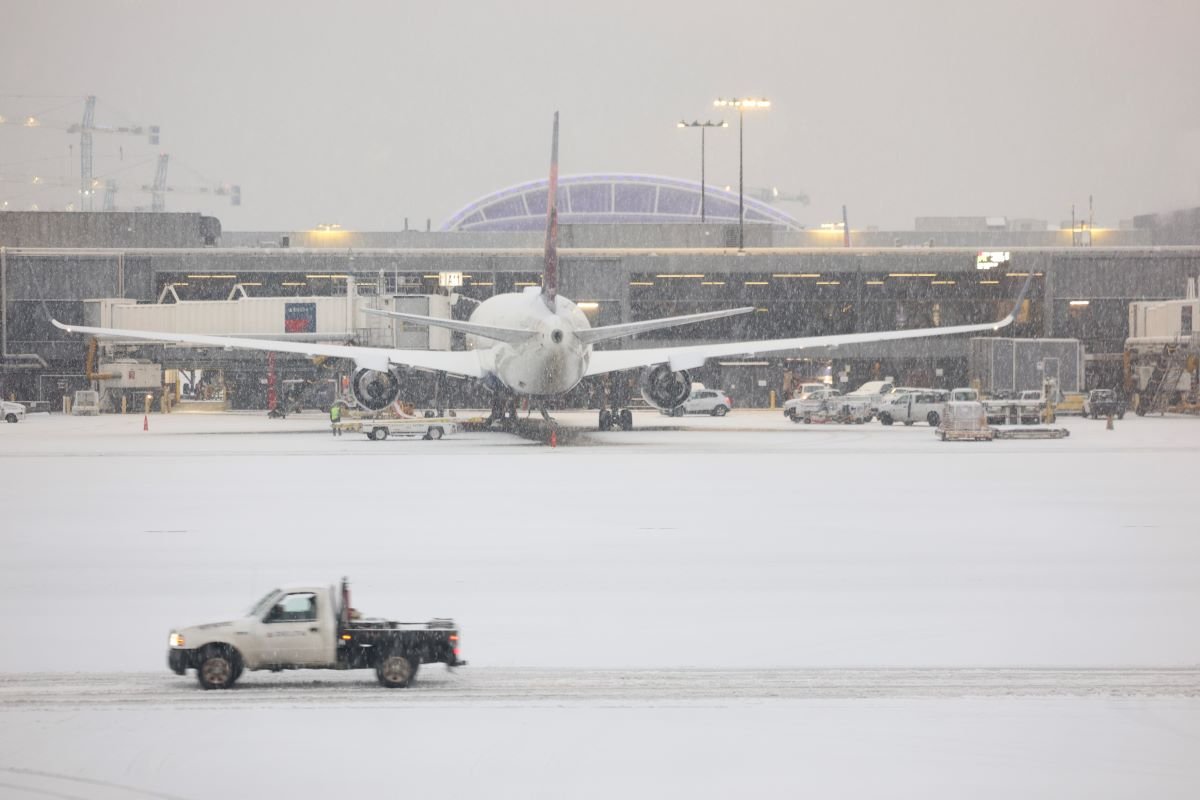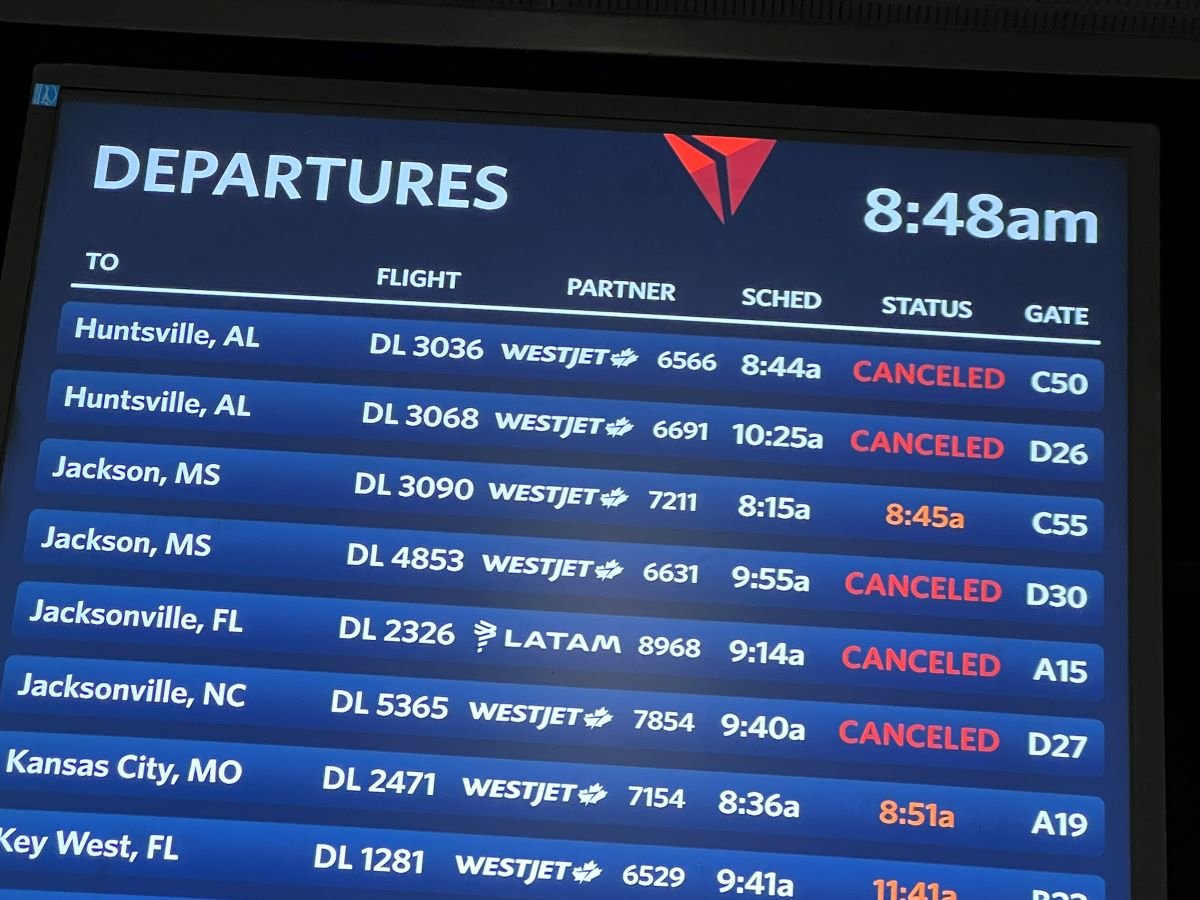A ground stop has been issued at Hartsfield-Jackson Atlanta International Airport, the world's busiest airport, as winter storm Cora delivers a wintry blast across the Southeast. The Federal Aviation Administration (FAA) stated that the stop went into effect shortly after 9 a.m. Friday and is expected to remain in place until 2 p.m. ET.
The disruption has led to 863 flight cancellations at the airport by late morning, according to FlightAware, with ripple effects extending across the nation. As of now, more than 2,800 flights nationwide have been canceled.
Adding to the chaos, an aircraft at ATL aborted takeoff Friday morning, resulting in an emergency evacuation. Passengers exited via emergency slides, and four people sustained minor injuries, with one transported for further care. The airport reported delays due to both the incident and severe weather conditions.

Why This Matters
Atlanta's Hartsfield-Jackson Airport serves as a critical hub for domestic and international travel. Disruptions at this airport often trigger a cascade of delays and cancellations across the United States.
Alex DaSilva, a meteorologist with AccuWeather, highlighted the widespread impact of the storm, noting that flight delays at major hubs like Atlanta could affect travelers hundreds of miles away.
"Even if your flight is far from the storm's path, planes originating in Atlanta might not be able to take off, causing nationwide delays," he told reporters at a briefing on Friday morning.
What To Know
Winter storm Cora is dumping snow and ice from Arkansas to Virginia, creating treacherous road conditions and complicating air travel. Winter storm warnings are in place across 26 states, with up to 14 inches of snow forecast in some areas.
Hartsfield-Jackson Airport lacks the snow-clearing equipment common in northern airports, which compounds the challenges of severe weather. Delays and cancellations are expected to continue through the day, even as temperatures in Atlanta may rise slightly above freezing later in the afternoon.

Which States Are Affected By The Snow?
The winter storm is impacting a broad swath of the country, with some areas facing heavy snow and others dealing with sleet and freezing rain.
As of Friday morning, the National Weather Service (NWS) had issued winter storm warnings for Alabama, Arkansas, Georgia, Illinois, Indiana, Kansas, Kentucky, Louisiana, Mississippi, Missouri, Montana, North Carolina, Oklahoma, South Carolina, Tennessee, Texas and Virginia.
Additionally, the NWS issued advisories for Colorado, Maryland, Michigan, New Mexico, Ohio, Oregon, Pennsylvania, Washington, and West Virginia.
What People Are Saying
Atlanta Airport, on X, formerly Twitter: "At 9:10 this morning an aircraft aborted takeoff at ATL. Passengers deplaned via emergency slides and were safely transported to a nearby concourse. Four passengers are reporting minor injuries; one was transported, the remaining were treated on the scene. Operations at ATL are delayed due to the incident and the ongoing severe weather."
Thomas Kines, senior meteorologist at AccuWeather, told Newsweek: "This storm is worse than a migraine headache for travelers. Most airports have or will have delays and canceled flights, and many roads are/will be too dangerous to travel on. The best advice for people who have to travel in the near future is to be patient! Remember, these delays often spill over to other airports—a domino effect.
"Even though an airport might be having nice weather, if the flight arriving is from an airport being affected by snow and ice, that flight is going to be delayed or canceled. Those who have to travel by car, it's best to wait a day if you can."
What Happens Next
The storm is expected to exit the East Coast by Saturday, but lingering snow and ice in the Tennessee Valley, Appalachians and Delmarva Peninsula could continue to disrupt travel into the weekend.
Hartsfield-Jackson is working to clear runways and resume normal operations.
Do you have a tip on a science story that Newsweek should be covering? Do you have a question about flight cancellation? Let us know via science@newsweek.com.




















 English (US) ·
English (US) ·